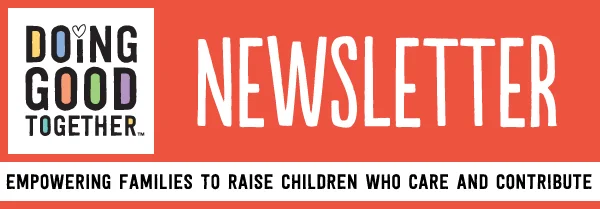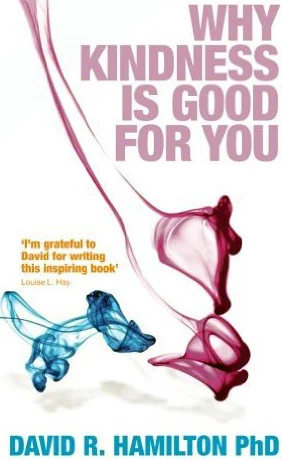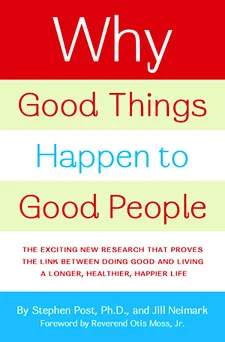6 WAYS PRACTICING KINDNESS IS GREAT FOR YOUR CHILD
Of course we want our children to be thoughtful, generous and fair. But on the family schedule, intentional acts of kindness and service often come behind homework, soccer and piano lessons. Why? Because good grades, sports, music -- all these activities "position our children for success," as one mother told me. Empathy, compassion and caring are qualities we hope and expect our kids will pick up, but they rarely make the cut when considering how to spend a Tuesday evening or Saturday morning.
Research says that's a mistake. Studies increasingly suggest that if you want your child to be successful (whether defined as happiness, academic achievement, good health or social connections) practicing kindness and doing for others should be high on your family's to-do list. Read on to see why.
-Jenny Friedman, Executive Director
THE SCIENCE OF DOING GOOD
Make a Difference.....
The research is unequivocal. Kindness, compassion and generosity lead to a better life for your child.
- Caring leads to higher achievement. Preschoolers who took part in a 12-week Investigating Healthy Minds "kindness curriculum," which included lessons on caring and mindfulness, showed greater academic achievement than those who didn't take part. The participating students also showed improvement in other skills that predict future success, such as mental flexibility, attention and the ability to delay gratification.
- Kindness makes you healthier and increases longevity. Research indicates that "doing for others" has a positive impact on the heart and immune system, may reduce inflammation, and can extend your lifespan. One large study found a 44% reduction in mortality among older people who were frequent volunteers.
- Giving is good for mental health. Both receiving and giving help are predictors of good mental health. A project from the UK Government Office for Science concluded that one of the "5 Ways to Mental Well Being" was to "give to others." It appears to reduce stress and isolation and put problems in perspective. Other research suggests that doing kind acts may effectively treat anxiety.
- Giving builds social bonds. Social connectedness is necessary for humans to thrive. Acts of kindness promote a sense of bonding and community by starting a chain reaction of positivity. Researchers have found that even a brief kindness-centered meditation can enhance our sense of connection to strangers.
- Kindness makes you happier. People who practice acts of kindness and giving get a happiness boost caused by increased dopamine, a "natural high." And these physiological changes stick. Interestingly, being happy makes you more likely to act kindly, creating a circle of goodwill.
- Kinder people are perceived as more physically attractive. We all know (as unfair as it is) that physically attractive people have advantages. Did you also know that studies show we rate kind, friendly people as more attractive than those who aren't? This suggests that regardless of our children's outward appearance, they'll be perceived as better looking if they're also perceived as kind!
CREATE A CLIMATE OF KINDNESS & GENEROSITY
Talk About It.....
Harvard researchers found that although parents say they value caring, children aren't getting the message. They recommend that parents be explicit about how important kindness, generosity and fairness are to them. Here are simple tips:
- Choose a simple project from our website and devote an hour to giving back. Talk about the difference your family is making.
- Share stories of kindness (from the newspaper or history books) to inspire children to think creatively about how to make a difference in people's lives.
- Help children put themselves in other people's shoes, whether it's their teacher, a new child in school, a friend who is struggling, or a sibling.
- When you read together, talk about how a character reacted to something and why, and discuss other (more positive) ways the character could have handled it.
- Encourage your children to share honest compliments. Ask: What's the best compliment you ever gave or received? How does it make you feel to get a compliment? To give a compliment?
Learn About It.....
These books provide insights into the science of kindness and compassion.
Why Kindness Is Good for You by David R. Hamilton, Ph.D. An overview of the health benefits of practicing kindness, and stories to inspire readers to action.
Why Good Things Happen to Good People by Stephen Post, Ph.D., and Jill Neimark. A review of the research supporting the idea that generosity, kindness and "giving back"are life-enhancing.
INSPIRATION
"If you want others to be happy, practice compassion. If you want to be happy, practice compassion."
— Dalai Lama





